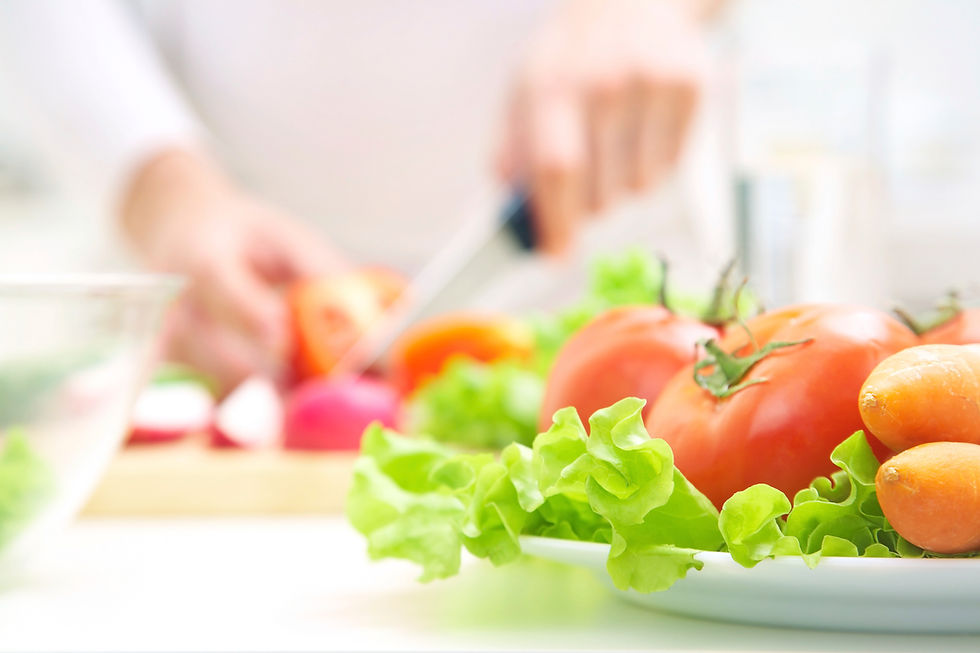'Clean Eating' sadly misunderstood

The definitions of Clean Eating vary widely. And that may be why this healthful way of eating is often misunderstood, ridiculed, and criticized (I agree that the name "Clean Eating" isn't a very good one, but I'll continue to use it throughout this article).
There are myriad definitions and “rules” for clean eating. Surf the web and you’ll see the hundreds of variations of Eat Clean diets. The definitions for clean eating all differ simply because each advocate has a different opinion based on their own beliefs, formed by their own research and experiences. And some create their own rules just to sell a ‘diet.’
Clean eating advocates all agree to minimize or avoid highly refined foods. However, interpretations vary widely of what a "refined" food is. Then there are those enthusiasts who advocate eating only organic and/or locally-grown produce. And many suggest avoiding food that is genetically modified (GMO).
Clean eating is simply this: Stop eating junk! Eat food that is as close as possible to how it occurred in nature. And if this means, for you, to eat only organic and no GMO, etc., well, that’s entirely your choice.

Clean eating isn’t just a ‘diet.’ It’s a term to describe the quality of food you choose to eat. Clean eating is flexible to any person, goals, beliefs, and values. And more importantly, it makes you mindful of what you are eating. There isn’t one diet best for everyone, but with clean eating, you can follow any diet you believe humans should eat, as long as you more often choose those foods that are whole and changed as little as possible.
I’ve practised clean eating for over 30 years. I do not eat highly refined foods. And although I won’t force my belief on my family, friends, or even my nutrition clients, I do like to educate them on the benefits of choosing whole, nutrient-rich foods. And I take great offence when I read articles like this: https://tonic.vice.com/en_us/article/zmvwb4/eating-clean-wont-make-you-any-healthier that misinform the public and potentially label me a fanatic.
According to the opinion in the above article, “Clean eating is useless.” Yet we know for a fact that highly refined, nutrient-poor foods are not conducive to good health. That’s why our Western diet is so criticized by every source: It’s comprised of highly refined foods that are making us sick. So I do not believe eating clean is useless.
Choosing from a wide variety of foods and not omitting any food or food group (unless you have a medical reason) is really the only guarantee we are getting all the known and yet-to-be-discovered nutrients we need to sustain life. And we have more of a nutrient guarantee if the foods we choose are mostly in their whole, unchanged form. Because the more we "process" or change any whole food, the more nutrients it loses. No need for evidence-based citations here; this is really a no-brainer.
More often, eat fresh foods that aren’t as tampered with or changed by humans, whole foods that our bodies can properly absorb and utilize. If you must have them, save those “human-designed foods” as an infrequent indulgence. Choose from a wide variety of unchanged fresh vegetables, fresh fruit, root and other ‘starchy’ vegetables, legumes, nuts and seeds, cooked whole grains, and healthy meat and dairy choices. Prepare them simply.
And that’s what Clean Eating is all about.

If you'd like to read my more detailed article on this topic, click on the article link What is Clean Eating? It is listed under Free e-books on this page of my website.
More information from the Mayo Clinic:
Eve Lees is a Nutrition Coach, a Health Speaker, and a Health Writer for several publications. She has been active in the health & fitness industry for almost 40 years and enjoys excellent health following the Eat Clean concept.





















